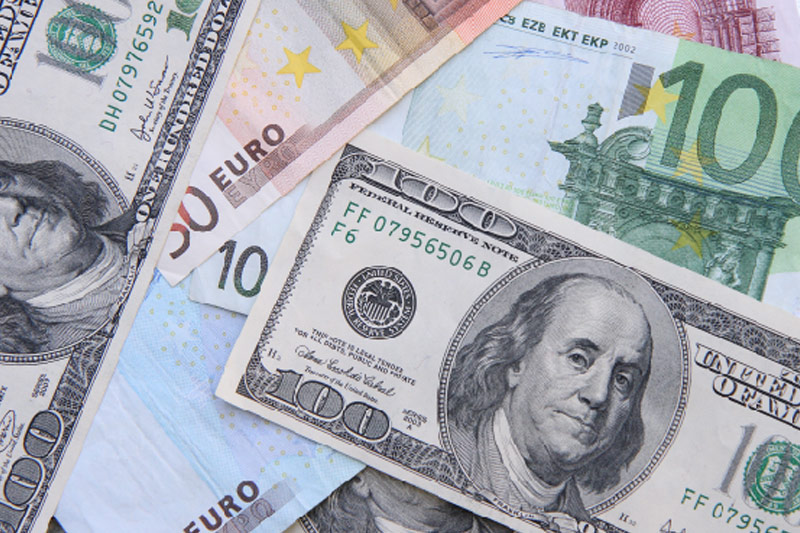* Euro broadly lower, hits 4-month lows vs yen
* ECB trims growth, inflation forecasts, says can adjust QE
* U.S. nonfarm payrolls next key focus for markets
* Aussie dips to new 6-1/2-year low (Adds details, quotes)
By Ian Chua and Shinichi Saoshiro
SYDNEY/TOKYO, Sept 4 (Reuters) - The euro nursed losses on Friday, having come under broad pressure after the European Central Bank gave a sobering assessment of the euro zone economy and suggested it may have to beef up its already massive stimulus program.
The common currency slid as far as $1.1087 EUR= , from levels above $1.1200. It last stood at $1.1127. Against the yen, it was down 0.4 percent at 133.00 after skidding to a four-month low of 132.985 EURJPY=R .
Traders in Asia may not take things much further ahead of U.S. nonfarm payrolls due later on Friday and with no leads from Chinese financial markets, which are closed for a holiday.
For the August U.S. non-farm payrolls, the market consensus is for an increase of 220,000 jobs. ECONUS
"Any boost for the dollar from a solid jobs report could be limited as the recent financial market turmoil has strengthened expectations that the Fed will delay hiking rates," said Masafumi Yamamoto, a senior strategist at Monex in Tokyo.
"And if the jobs report is very strong and does raise prospects of a September hike, that could be perceived as negative for the global markets amid fears of slowing Chinese growth and spark off risk aversion. The dollar could even end up being sold against the yen."
The yen's surge against the euro also nudged it up versus the dollar. The greenback slipped 0.5 percent to 119.51 yen JPY= .
For the first time, ECB President Mario Draghi said explicitly the bank's bond-buying programme may run beyond September 2016 and that its size and composition may be adjusted.
The ECB warned growth would suffer from fading momentum in emerging markets, particularly China, and falling oil prices could drag the 19-member euro zone back into deflation in coming months. In a widely expected decision, it left policy unchanged for now. ID:nL5N1190VG
"Bottom line: the risk the ECB's current asset purchase program is extended beyond September 2016 is rising which should continue to weigh on euro and euro zone short-term swap rates," Elias Haddad, senior currency strategist at Commonwealth Bank wrote in a note to clients.
Weakness in the euro helped lift the dollar index .DXY to its highest in over two weeks at 96.616, and further away from a seven-month trough of 92.621 plumbed last week.
The ECB's dovish stance helped inject some life into European stocks, but failed to lift risk appetite in general, resulting in a half-hearted performance from Wall Street.
Commodity currencies like the Canadian and Australian dollars CAD=D4 sagged against the greenback in the wake of easing crude oil prices. The Aussie stooped to a new 6-1/2 year trough of $0.6960 AUD=D4 .
Investors have been aggressive sellers of the Aussie in recent weeks, in large part due to heightened concerns about a hard landing for the Chinese economy. China is Australia's top export market.
There is nothing in the way of market-moving data out of Asia on Friday, leaving the focus firmly on U.S. data. Chinese markets resume trade on Monday, while U.S. markets will be shut for Labor Day.
(Editing by Simon Cameron-Moore)
